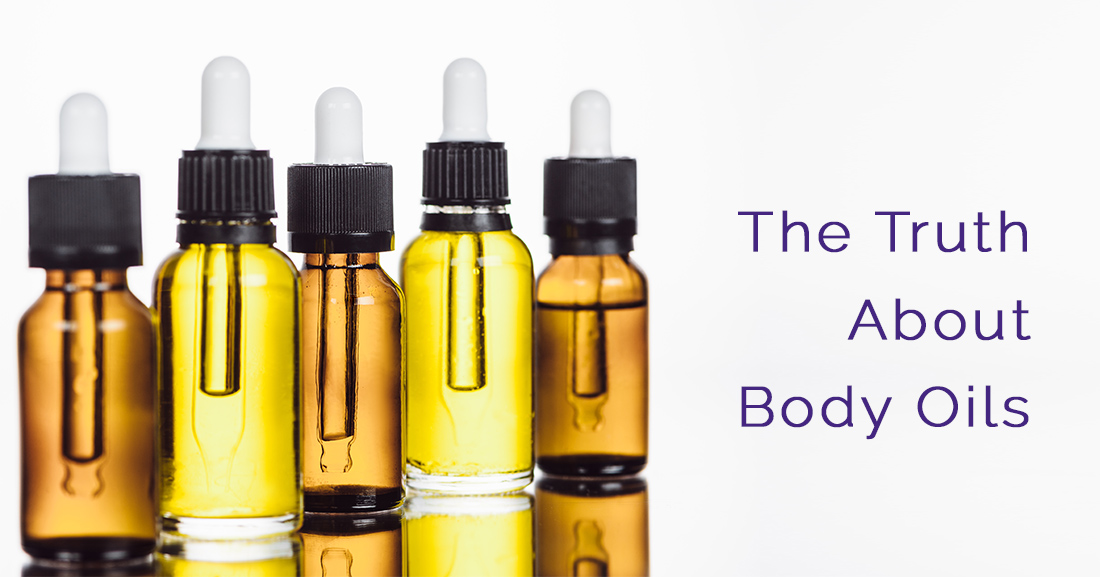
15 Sep The Truth About Body Oils
Vegetable and plant-based oils, such as avocado, jojoba, apricot, safflower and almond, mimic the natural lipids in our skin to help repair and re-regulate it’s moisture barrier. When absorbed, the top layers of our skin treat them as their own resulting in a reparative, moisturized effect. They sink into the skin like “food” for the body.
Main benefits include:
- Non-greasy – won’t clog pores
- More quickly absorbed
- Locks in moisture for an extended period
- Better protection from environmental hazards
- Hydrates and repairs
- Balances natural oil production of the skin
Body and facial oils are most effective when applied to wet skin immediately after bathing or showering to help seal in moisture. Upon exiting the shower or tub gently pat skin dry with a towel, then apply your preferred oil by blending it in with the small droplets of water still left on skin to lock in the maximum amount of hydration possible.
Although it seems counterintuitive, dermatologists recommend using a face oil on acne-driven or oily skin because it actually helps reduce the skin’s natural sebum production by no longer forcing it to overcompensate.
When vegetable and plant-based oils are combined with other herbs and essential oils they can offer enhanced benefits that repair and nourish based on the special components of the added ingredients. Download our essential oil guide, Essential Oils – Nature’s Rescue Remedies – it is a great resource for the benefits provided by 21 different single note essential oils.
Read The Label
When selecting body and facial oils to put on your skin, it is important to read through all of the ingredients listed on labels. Even though a product may contain one or more ingredients designated as “organic” or “natural,” it might also contain chemical ingredients that are not healthy for your skin. Make sure the products you use are as pure as possible with clean, cruelty-free ingredients.
